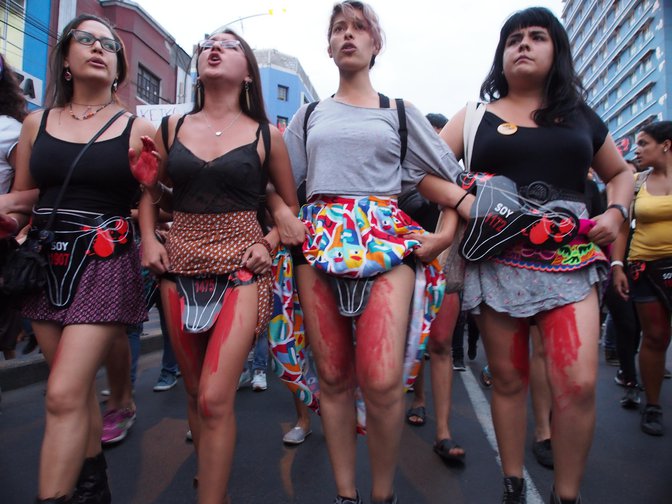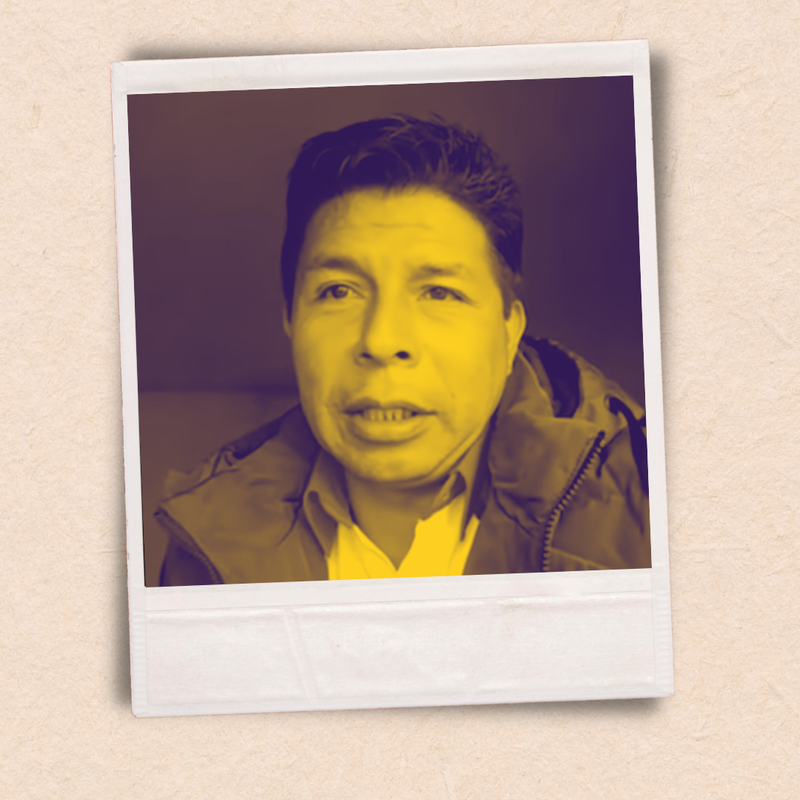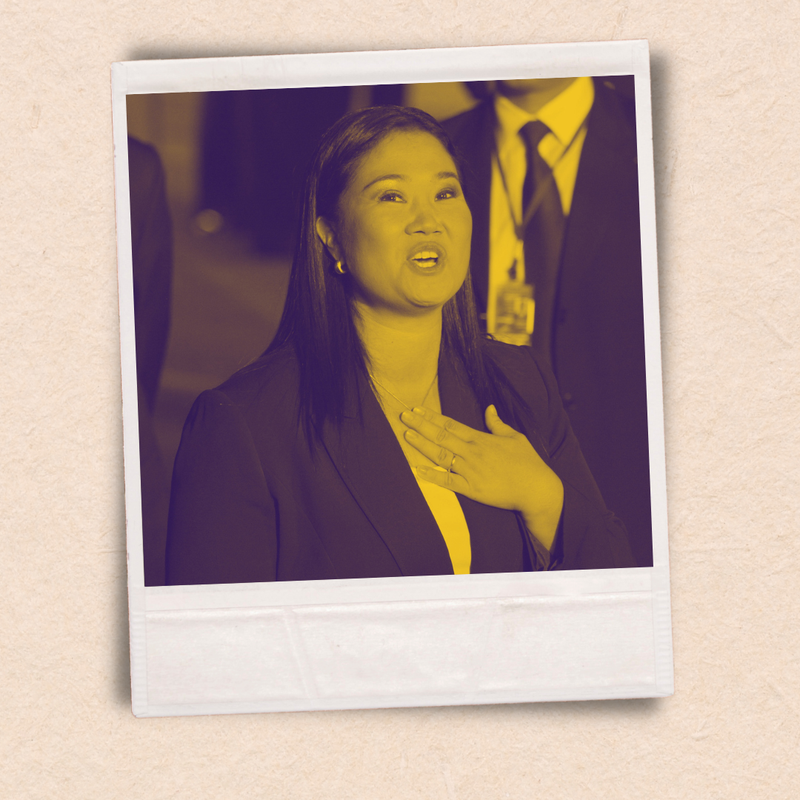There’s no way to vote for women’s rights in Peru’s presidential elections
The country infamous for forced sterilisations will face the choice of two ‘anti-gender’ candidates in run-off elections in June
 |
Anti-women rhetoric has entered national electoral politics in Peru – the country that is infamous for its policy of mass forced sterilisations of poor, indigenous women 20 years ago.
“God created the man to be the king, the prophet and the priest of your home. And no woman has the right to deprive a man of his God-given role,” the wealthy evangelical pastor Milagros Aguayo recently said. Aguayo is also a founder of Don’t Mess With My Children, a platform for religious and ‘anti-gender’ groups that first appeared in 2017 and has since spread across South America.
She won a seat in Peru’s Congress last month, but her election isn’t the only bad ballot-box news for women and girls in Peru. Alejandro Aguinaga was also elected as a legislator in April. He was the health minister under President Alberto Fujimori in the late 1990s and one of the perpetrators of Peru’s notorious forced sterilisation campaign.
These aren’t the only setbacks for advocates of women’s rights in Peru. Despite coming from opposite sides of the political spectrum, both candidates for the country’s presidential run-off elections to be held on 6 June are hostile to gender equality and reproductive rights.
Devastating for women and girls
Peru has one of the worst track records in the world when it comes to women’s rights. Abortion is only allowed if the mother’s health or life is at risk. Raped women and girls have no right to terminate their pregnancies, and can be prosecuted and jailed if they do so.
This means that, every day, four under-15s (who are often the victims of rape) are forced into maternity. Every hour, eight 15-19s give birth; two-thirds of such pregnancies are unwanted, according to 2017 figures.
Only half of the country’s women have access to modern methods of contraception, such as condoms or the pill.
For decades, Peru has been a major hub for ‘anti-rights’ groups campaigning against sexual and reproductive rights
The COVID-19 pandemic has only made matters worse. The first year of this crisis was devastating for women and girls: the use of modern contraception fell 20%, maternal deaths increased 42%, and the number of ‘child girls’ (under-11s) giving birth grew fourfold.
The 2020 annual report from Peru’s human rights office lists 5,500 reports of disappeared women (most of them under 18), 138 femicides and 208 attempted femicides.
The number of people calling an official hotline to ask for help with domestic and sexual violence almost doubled in 2020, compared to 2019.
In addition, Peru has been a major hub for decades for Latin American ‘anti-rights’ groups campaigning against sexual and reproductive rights. It’s the homeland of the growing ‘anti-gender’ platform Don’t Mess With My Children, which has tried to ban comprehensive sexual education.
No good options in June
Pedro Castillo currently has a slight lead in the polls for the presidency. A teacher, union leader and self-described “radical leftist” from the Free Peru (Perú Libre) party, he has support in rural and poor areas.
He proposes to dramatically expand public spending on health and education, but has also declared himself to be “absolutely against” schools teaching such topics as gender equality, respect for sexual diversity and non-discrimination.
Castillo says that the legalisation of abortion could be debated by a new constitutional assembly that he will set up if elected (2020 figures show that 48% of Peruvians want to legalise abortion, 40% don’t). On the subject of abortion, Castillo has said: “Personally, I’m against it”. On same-sex marriage: “That’s even worse; family first.”

It’s unclear exactly what policies Castillo and his government would promote if he wins. Free Peru’s manifesto supports the decriminalisation of abortion, but warns against “abortion being used as a sort of contraceptive method”. It also promises a “process of de-patriarchalism”, including “rooting out machismo, but avoiding planting its opposite extreme, feminism”.
There are few doubts about Castillo’s opponent. Leader of the right-wing Popular Force (Fuerza Popular) party, Keiko Fujimori is a well-known public figure and the daughter of former president Alberto Fujimori (who was imprisoned in 2009 for 25 years for human rights crimes). She narrowly lost the run-offs for president in 2011 and 2016.
In mid-March, Keiko Fujimori was herself charged with organised crime, money laundering, obstruction of justice and perjury. (If she wins the presidency, she would be granted immunity until the end of her five-year term.)
In 2018, Popular Force introduced a bill (still pending) to remove every reference to ‘gender’ and ‘gender equality’ from Peru’s laws and policies. Party legislators have also described the Ministry of Education as “Sodom and Gomorrah”, for introducing lessons on gender equality and respect for sexual diversity into the curriculum.

In March, Fujimori said that, if elected, she would “re-evaluate ‘gender ideology’”, although her government plan doesn’t mention reproductive health or sex education.
But nothing is more telling about the orientation of Fujimori's party than the fact that Alejandro Aguinaga won a parliamentary seat for Popular Force last month. As Peru’s health minister in the 1990s, under the presidency of Keiko’s father, Aguinaga “oversaw forced sterilisations”, according to charges filed in March.
More than 270,000 women (and 22,000 men) were sterilised against their will in the late 1990s, as part of a government attempt to cut birth rates among poor families. Most of the women were from impoverished, rural, indigenous communities and did not understand or consent to the procedure.
The UN Committee Against Torture and the OAS’s Inter-American System of human rights have repeatedly urged Peru to fully investigate these crimes against humanity and to compensate the victims. In March, after decades of waiting, the cases of 1,306 women finally had their first hearings in court.
It’s not clear yet if these cases will proceed – or if Alberto Fujimori, Aguinaga and other offenders will be convicted. But Keiko has said that, if she wins the presidency, she will pardon her father.
Ultimately, this is a detail. The big picture is that voters who care about women’s rights have no good options in these presidential elections in Peru – a country with the fifth-largest population in Latin America.


No comments:
Post a Comment
Note: only a member of this blog may post a comment.